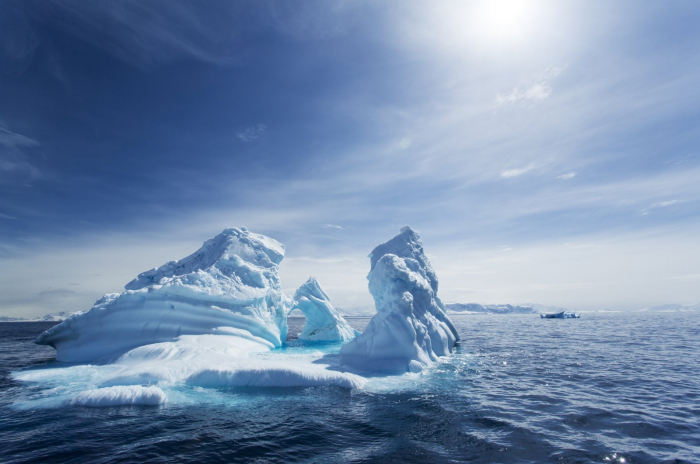Antarctica's ecosystems could be threatened by the arrival of non-native marine species and marine pollution from Southern Hemisphere landmasses, new oceanographic modeling shows.
Previously, scientists thought non-native species only drifted from remote and unpopulated islands in the Southern Ocean.
New research published in Global Change Biology on Thursday suggested they could reach the Antarctic coastline from all southern continents.
Scientists have said that non-native species could reach Antarctica by catching a ride on floating objects like kelp, driftwood, pumice and plastic.
Co-author Crid Fraser said that kelp could deal a potential "double whammy blow" to Antarctica's marine ecosystem.
"Southern bull kelp and giant kelp are very big – often more than 10 meters long – and create forest-like habitat for many small animals, which they can carry with them on the long rafting trips to Antarctica," she said.
"If they colonize Antarctica, marine ecosystems there could change dramatically."
Using modeled surface current and wave data from 1997 to 2015, scientists tracked the movement of floating debris from various Southern Hemisphere land sources toward Antarctica.
"We found that rafting objects reached the Antarctic coastline in each of the years simulated. There seems to be a constant bombardment of anything that floats – whether it's kelp or a plastic bottle," co-author Adele Morrison said.
Most of the rafting objects arrived at the tip of the Antarctic Peninsula, a region with relatively warm ocean temperatures and often ice-free conditions, making it a likely area for non-native species first to establish, the scientists said.
The dramatic drop in Antarctic sea ice made these rafting connections particularly concerning.
"Sea ice is very abrasive and so acts as a barrier for many non-native species to establish around Antarctica successfully," lead author Hannah Dawson said.
"If the recent decline in Antarctic sea ice continues, then living things floating at the surface or attached to floating objects could have an easier time colonizing the continent, which may have big impacts on ecosystems."
More about: #Antarctica















































